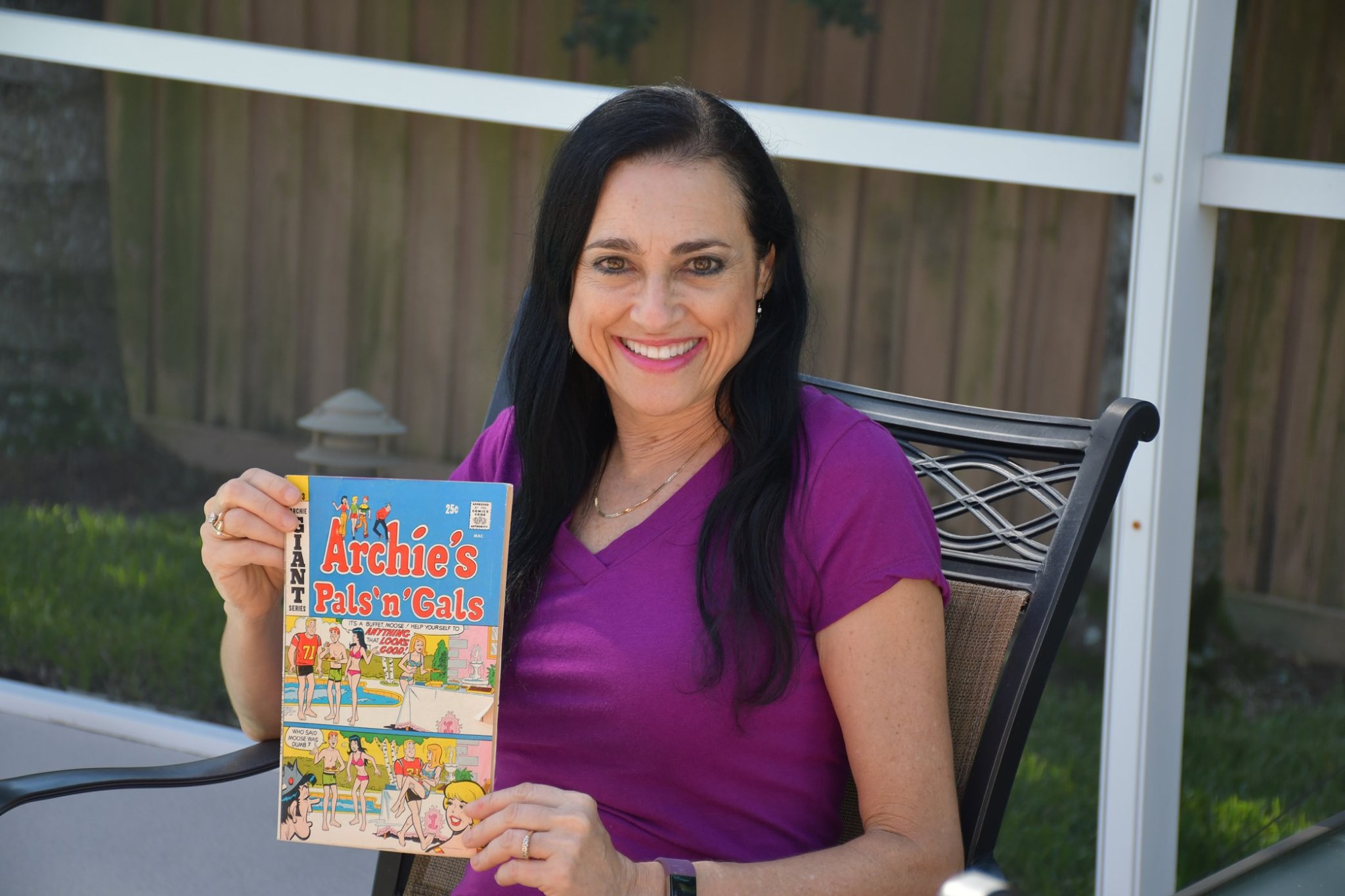Getting Started as a Freelance Copywriter
Education and Skills Development for Aspiring Copywriters

Launch your freelance copywriting career and begin achieving your goals today!
Hi, I’m Susan Greene. I’m a freelance copywriter based in Orlando, Florida with more than 25 years of experience. At various times in my career, I’ve been interviewed by reporters and bloggers writing stories about copywriters.
I’ve also been tapped for advice by fellow copywriters, some of whom were novices and others who had experience but needed a sounding board or guidance on a particular situation.
I’ve compiled the questions I was asked by these various individuals. You’ll find them in this first post and the rest of this series in my blog.
My answers speak to my personal experience, which means they may or may not be the right answers for you, but I do think you’ll find them helpful.
I’ve also included many of the stories and bits of advice that I’ve accumulated over the years in the hope you can learn from my mistakes and possibly avoid some of the common pitfalls.
I hope you find my responses useful as you travel on your journey to become a happy and successful freelance copywriter.
Susan Greene
What does a copywriter do?
Copywriters write advertising and marketing copy, such as websites, brochures, ads, blog posts and more. The words we write (our “copy”) sell products and services, convince people to take an action, or persuade them to think of a company or brand in a certain light.
Do you need a college degree to become a copywriter?
No, not necessarily, although it helps. There are online copywriting courses, YouTube videos, and plenty of books and mentoring programs that can take the place of college if you’re self-disciplined enough to follow through.
I have a BS in journalism from Syracuse University. And I have an MBA from New Hampshire College (now called Southern New Hampshire University). I went the traditional route for my education but nothing says you have to follow the same path.

I went the traditional route for my copywriting career, attending a four-year college and obtaining a BS in journalism. But everyone gets to choose their own path.
For someone who doesn’t have your educational background, how can you begin working in the industry?
Look for every opportunity to write. Draft an article for your church’s monthly newsletter. Help a neighbor compose a letter. Create a flyer for your child’s dog-walking service. Send a guest post to your favorite blog and ask if they’ll publish it.
Self-education and practice will help you learn the basics. At some point, you may want to consider working one-on-one with a copywriting coach, someone who can help you accelerate your growth.
To land paying clients as a freelance copywriter, you can get by with a website and portfolio to show off your work. That’s what clients will want to see, much more so than a specific college degree.
Just be sure you don’t use studying as an excuse to procrastinate doing the work. I can’t emphasize this enough.
You won’t accomplish your goals as a perpetual student. At some point, you need to put what you’ve learned into practice. Take that leap and start learning from doing instead of studying. This is theme you’ll hear me mention frequently, as it’s a common pitfall for many aspiring copywriters.
Were you able to get a job in your field during or right after college?
During my college years, I worked as a news intern for the NBC affiliate in Miami Beach, my hometown, for two summers. I learned a lot from the television reporters I shadowed.
My first real job after graduation was with an advertising agency, and I soon realized that writing marketing copy more closely fit my interests and my entrepreneurial spirit than broadcast journalism, so that’s the direction I decided to pursue.
When did you first know you wanted to become a writer?
I was an avid reader as a kid. The written word fascinated me. I began writing poems and short stories. I dreamed of writing books. I knew early on that I would work in some field that required reading and writing.
One situation stands out in my mind as one that made me aware of my interest in writing. It was a comic book contest.
A $3 Contest Win Started My Writing Career
I knew I wanted to be a writer from a young age. An Archie’s comic book played a pivotal role in that decision. Every Archie’s comic book featured a spread in the middle with three submissions from readers. The submissions were awarded first, second and third prizes of $5, $3, and $2 respectively.
When I was 9-years-old, I sent in a poem I wrote about the Archies (don’t judge) and won second prize, $3, making it my first paid writing job and first time being published. I was thrilled, but that wasn’t what made me decide to become a writer.
Archie comics were widely circulated around the world. Once my poem was published, along with my full name and address, I began receiving letters from all over the world. They were from kids, most around my age, seeking an American pen pal. Keep in mind this was pre-internet, pre-email.
This is the actual comic book from the 1970s. I’d long since lost my copy but my daughter managed to find one for sale on eBay and surprised me with it on my birthday last year. She said she had to outbid several other buyers. I’d like to believe they all wanted to read my poem about the Archies.
I soon had pen pals in the Philippines, India, Australia and dozens of other countries. The letters trickled in, a few every month, for several years, as the comic books were circulated and traded long after the original publication date.
I responded to every letter I received, and I maintained a correspondence with anyone who continued to write me. Composing those many letters was how I realized I loved to write.
* * *
What resources are indispensable for freelancing?
In terms of equipment, you only need a phone, computer and internet access. If we’re talking about personal resources, essentials include: self-motivation, self-confidence, an excellent work ethic, resilience, optimism, curiosity and salesmanship.
Do I need a professional license to operate?
No, not that I know of. I’ve never had one. However, I did at one point go to my city’s government offices and ask. One person there seemed unsure and told me I “probably” did need a professional license and it would cost in the neighborhood of $100 per year. However, I would also need to run an ad in the daily newspaper to announce the service I was providing. That would cost another $100+ per year.
Because it seemed like a gray area, I asked a few other copywriters in my area if they had professional licenses or had ever been asked to show one to any official, and they said no. That settled it for me. I opted to not pursue it further. If that makes you uncomfortable, feel free to contact your own city clerk or tax office and find out what, if anything, they require.
What skills do I need to be an effective freelance copywriter?
The need for writing skills is obvious, but beyond that you should know how to run a business, albeit a small one. You’ll want a basic understanding of bookkeeping so you can track your accounts receivable and payable.
You’ll need to understand how and when you pay taxes if you’re self-employed. The U.S. government is not going to wait for you to settle up at the end of the year. You’ll need to pay quarterly taxes meant to cover Social Security, Medicare and your income tax.
You also should have a desire to learn along with research and listening skills. So much of copywriting involves understanding your clients, their business model and their industry. If you’re not naturally curious, you’ll have a hard time gathering the information you need on a particular subject to be able to write about it.
Where should I focus my attention in striving to become a freelance copywriter?
Obviously, you want to continue improving your writing skills. If you plan on doing copywriting for websites, you’ll want to learn about search engine optimization (SEO), which is critical to ranking on Google.
You’ll also want to understand what is meant by the user experience, which online marketer Neil Patel describes as “how someone interacts with and uses your website. It describes the overall interaction between human and website. User experience has a lot of ramifications. It impacts content, design, conversions, search, and everything in between.”
If mastery of all those skills sounds like an overwhelming endeavor, know that you don’t have to be an instant expert. You can learn as you go along. And the more you knowledge and experience you gain, the better you’ll become at creating effective copy.

Continue learning as you progress in your copywriting career. It’s important to stay current and also keep improving.
Now that you’re well-established and successful, do you still invest time in learning?
Absolutely. I still read blogs and ebooks about copywriting all the time. I occasionally attend webinars. I’d like to think that I’m an expert, but in truth I’m often humbled by other writers’ work.
I don’t think you ever get to a point where you “know it all” but you can strive to always be learning and improving.
How do you become a great copywriter? Do you have to be born with talent?
It sure does help to be born with talent. We each have things that come more easily to us than others. But don’t let that discourage you if copywriting talent is elusive in your case.
Talent is overrated. Albert Einstein once wrote, “I know quite certainly that I myself have no special talent. Curiosity, obsession and dogged endurance, combined with self-criticism, have brought me to my ideas.”
As with any skill, you have to work at it. Even if you’re fortunate to have natural writing talent, you still have to learn the craft and practice if you want to excel.
I’d like to believe the more I write, the better I get in my profession. When you invest 30-40 hours a week using your skills, you have to be improving, right?
Additionally, I do a lot of professional reading. I’m continually searching for new approaches, new trends, new concepts. I learn from other great copywriters and then try to apply whatever new ideas I pick up.
I also learn from my clients. They teach about what is effective in their industry. They review my work and made suggestions. Their feedback helps me improve.
* * *
Learn more about the types of projects copywriters can obtain in the next post, What Copywriters Do.
Contact Susan Greene
Need help with copy for your website or marketing materials. Work with an experienced copywriter.
Get a quoteTestimonial
Excellent work
Copy approval of the skincare article went very smoothly, and we don't need to make any further changes. Thank you for your excellent work!
Nozomi Araki
International Corporate Communications
Brain Center Inc.
Tokyo, Japan


